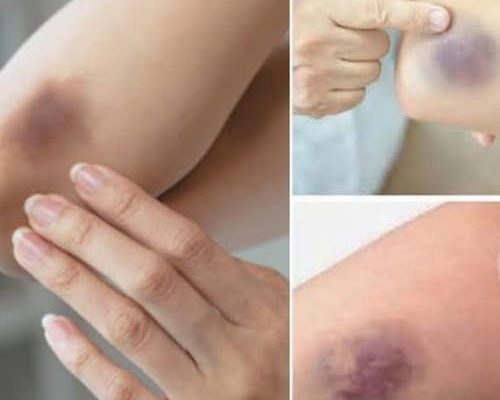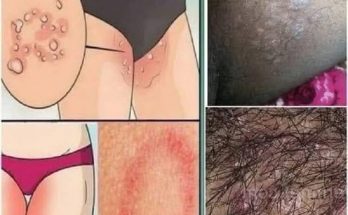Bruising—technically known as ecchymosis—occurs when small blood vessels called capillaries break under the skin, allowing blood to leak into the surrounding tissue. This results in the familiar discoloration that can range from blue and purple to yellow or green as it heals. Most bruises are harmless and fade over time. However, frequent, large, or unexplained bruises could be your body’s way of signaling something more serious.
Common Causes of Bruising
1. Minor Injuries or Bumps:
Most bruises come from everyday knocks—bumping into furniture, exercising, or even mild accidents. In these cases, bruising is normal and usually nothing to worry about.
2. Vitamin Deficiencies:
Your body needs certain nutrients to maintain healthy blood vessels and proper clotting. A lack of these vitamins can lead to easier or more severe bruising:
-
Vitamin C: This vitamin plays a crucial role in collagen production and maintaining the strength of blood vessel walls. A deficiency can cause capillaries to break more easily, resulting in more frequent bruises.
-
Vitamin K: Essential for normal blood clotting. Without enough of it, even small injuries can cause prolonged bleeding under the skin.
-
Vitamin D and B Complex (especially B12 and folate): These support blood cell production and tissue repair. A deficiency may indirectly contribute to bruising or slow healing.
Supplements and Medications That May Increase Bruising
Certain supplements and medications can thin the blood or affect clotting, making you more prone to bruises:
-
Supplements:
-
Omega-3 fatty acids (fish oil)
-
Ginkgo biloba
-
Ginseng
-
Garlic (especially in large amounts)
-
Vitamin E
These all have mild blood-thinning properties, which can slow clotting and make bruises more likely or more pronounced.
-
-
Medications:
-
Anticoagulants (e.g., warfarin, heparin)
-
Antiplatelet drugs (e.g., aspirin, clopidogrel)
-
Steroids (e.g., prednisone)
-
Certain antidepressants or anti-inflammatories
If you’re on any of these, monitor your bruising and talk to your doctor if you notice changes.
-
Other Contributing Factors
Aging:
As we age, skin becomes thinner and loses protective fat. Blood vessels also become more fragile, so even minor bumps can cause visible bruising.
Sun Damage:
Long-term sun exposure weakens skin and underlying vessels, making bruising more common—especially on areas like the forearms.
Medical Conditions:
-
Diabetes can impair circulation and healing.
-
Liver disease may affect clotting factor production.
-
Blood disorders, such as hemophilia, leukemia, or thrombocytopenia (low platelet count), can cause unexplained or excessive bruising and require immediate attention.
How to Treat Bruises at Home
Use the RICE method in the first 24 to 48 hours:
-
Rest: Avoid activities that could aggravate the bruise or cause more injury.
-
Ice: Apply an ice pack wrapped in a cloth to reduce swelling and limit bleeding under the skin. Use for 15–20 minutes at a time.
-
Compression: Lightly wrap the bruised area to reduce swelling (if appropriate and not too tight).
-
Elevation: Keep the area raised above heart level if possible to minimize swelling.
After 48 hours, switch to warm compresses to increase blood flow and promote healing. Avoid using aspirin or ibuprofen, as they can thin the blood and potentially worsen bruising. Instead, acetaminophen (Tylenol) is usually a safer pain reliever if needed.
When to See a Doctor
While most bruises are nothing to worry about, medical evaluation is important if you notice any of the following:
-
Frequent or recurring bruises, especially without obvious cause
-
Very large or deep bruises from minor impacts
-
Bruising in unusual places (e.g., back, abdomen, face, or behind the ears)
-
Bruising accompanied by bleeding gums, nosebleeds, or blood in urine/stool
-
Bruises that don’t heal or fade within two weeks
-
Painful swelling or signs of infection around the bruise
-
Bruising in infants, young children, or older adults without explanation
-
If you’re pregnant and experiencing new or worsening bruising
-
A sudden increase in bruising after starting a new medication or supplement
Final Thoughts
Bruising may be common, but it can tell you a lot about your overall health. Don’t ignore what your body is trying to say. Whether it’s a nutrient deficiency, a side effect of medication, or a sign of a more serious issue, paying attention to your bruises—and how they develop—can help you catch problems early.
When in doubt, always consult a healthcare provider. It’s better to ask and be reassured than to overlook a signal your body is trying to send.



